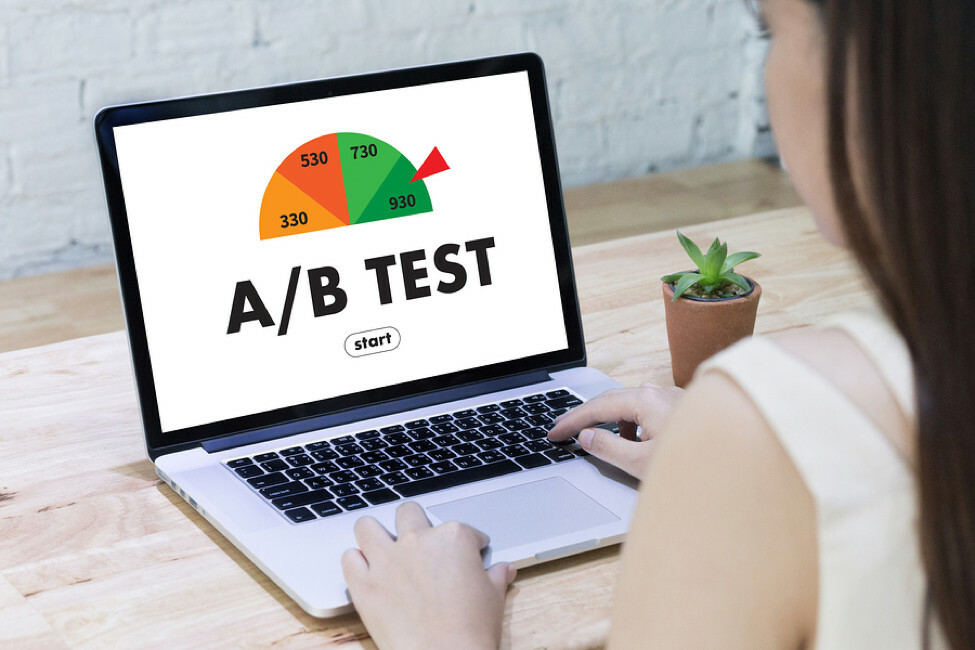Maximizing Efficiency and Profits with the Best AB Testing Tools for Real Estate Industry
They trust us:





Best AB Testing Tools For the Real Estate Industry
(source:https://images.app.goo.gl/ozap8EJqC9ZjFNaL8)
In the real estate industry, A/B testing tools are essential for optimizing websites and increasing conversions. One of the best A/B testing tools for the industry is Optimizely. This software allows businesses to test different variations of their website and analyze which ones perform the best.
With its intuitive interface and powerful analytics, Optimizely is an excellent choice for businesses looking to optimize their website for maximum performance. Another popular A/B testing tool is Google Optimize, which is a free and easy-to-use tool that integrates with Google Analytics.
With its simple setup and real-time reporting, Google Optimize is a great choice for businesses of all sizes. Finally, VWO (Visual Website Optimizer) is a comprehensive A/B testing tool that offers a range of features, including heatmaps, visitor recordings, and surveys. Its powerful tools make it an ideal choice for businesses looking to gain deeper insights into their website visitors.
Overall, these A/B testing tools are essential for optimizing websites and increasing conversions, making them a must-have for real estate professionals looking to maximize their online presence.
What is Split?
Split is a feature delivery platform that helps organizations release features securely and measure their impact on customer experience metrics. With Split, developers can deploy more frequently and experiment with features to see what their customers love or hate. Split’s platform pairs the speed and reliability of feature flags with data to measure the impact of every feature, allowing organizations to deliver the features that matter faster.
Split’s platform includes a variety of features, including the ability for users to create rules based on data and metrics, alerts, kill switch behavior, and dynamic configurations. Split also provides SDKs for some of the most popular language libraries and an evaluator service capable of evaluating available features for a given customer via a REST endpoint for languages where there is no native SDK support.
Split’s platform contains everything that pertains to a feature, including all of the environments it lives within, and users can configure their splits for a particular environment by selecting the environment and creating and defining targeting rules, including treatments within the split. Split also offers a variety of resources, including a help center, documentation, and pricing plans to help organizations choose the best plan for their needs.
In summary, Split is a feature delivery platform that helps organizations deliver features faster, experiment with features, and measure the impact of every feature. By providing a secure way to release features, target them to customers, and measure their impact on customer experience metrics, Split empowers developers to shorten the time from code to customer and continuously deliver value to their customers.
What are the features of Split?
Split is a feature delivery platform that offers a range of features and tools for managing software features and releases. One of the key features of Split is its ability to manage features through feature flags. With its feature flagging capabilities, users can easily turn features on or off, roll out features gradually, and target specific groups of users with different feature sets.
Another key feature of Split is its advanced targeting and segmentation tools. With its range of targeting options, including user attributes, location, and behavior, users can deliver personalized experiences to different groups of users. Additionally, Split offers a range of experimentation tools, including A/B testing and feature rollouts, which help users validate their features and ensure they meet user needs.
Split also offers a range of collaboration tools, including real-time commenting and markups, version control, and access control. These tools help teams work together more efficiently and ensure everyone is working with the most up-to-date feature data.
In addition, Split offers a range of customization options, including the ability to create custom workflows and reports, as well as integrate with other software applications through APIs. This makes it easy for users to tailor Split to their specific feature management needs.
Overall, Split is a powerful and innovative feature delivery platform that offers a range of features and tools for managing software features and releases. Its feature flagging capabilities, advanced targeting and segmentation tools, experimentation tools, collaboration tools, and customization options make it a popular choice for software developers in the real estate industry.
What is the pricing of Split?
Split offers a variety of pricing plans to suit different needs. Split’s pricing model is based on a per-seat, per-month basis, with different tiers for each plan. Split offers four pricing levels: Developer, Team, Business, and Enterprise. The Developer plan is free and includes basic functionality.
The Team plan starts at $330 per month and offers a rollout dashboard, SSO/SAML authentication, role-based access controls, and self-guided learning programs via Split Arcade. The Business plan starts at $600 per month and includes everything in the Team plan, as well as data-driven decisions.
The Enterprise plan is designed for larger organizations and offers customized pricing plans. It includes all features of the Business plan and additional features such as data export capabilities. Please note that some features are only available on specific pricing plans.
To learn more about Split’s pricing plans and features, you can refer to their pricing page or contact their support team.
What are AB Testing tools?
AB testing tools are software applications used to test and optimize the performance of websites, applications, and marketing campaigns. AB testing, also known as split testing, involves comparing two versions of a webpage or campaign element to determine which one performs better.
AB testing tools allow users to create and run experiments to compare different versions of a webpage or campaign element, such as a headline, image, or call-to-action. These tools typically use a randomized control trial to split traffic between the two versions and track user behavior, such as clicks, conversions, and bounce rates.
By using AB testing tools, businesses can make data-driven decisions to optimize their website or campaign elements, resulting in higher conversions, engagement, and revenue. These tools can also help businesses to identify the most effective messaging, design, and user experience for their target audience.
Some popular AB testing tools include Google Optimize, Optimizely, and VWO. These tools can be used by businesses of all sizes and industries to test and optimize their website or marketing campaigns, resulting in improved performance and ROI.
Why should Real Estate companies use AB Testing tools?
(source:https://images.app.goo.gl/aMEtzeXN73VQn23e9)
Real estate companies can benefit from using AB testing tools to optimize their marketing campaigns and improve conversion rates. AB testing involves creating two or more variations of a marketing campaign and testing them against each other to see which one performs better.
By using AB testing tools, real estate companies can identify which marketing strategies are most effective in reaching their target audience and generating leads. This can help them to refine their messaging and improve their overall marketing strategy. AB testing tools can also help real estate companies to make data-driven decisions about their marketing campaigns, rather than relying on guesswork or intuition.
By using AB testing tools, real estate companies can improve their marketing ROI, increase conversion rates, and ultimately, grow their business.
What features should AB Testing tools include for Real Estate agents?
AB testing is an essential tool for real estate agents who want to optimize their marketing efforts and improve their conversion rates. When it comes to choosing the right AB testing tools, there are several key features that should be considered.
Firstly, the software should have an easy-to-use interface that allows real estate agents to quickly create and launch tests. This is important because real estate agents often have a limited amount of time to create and implement marketing campaigns.
Secondly, the software should have the ability to run tests on multiple channels, including email, social media, and website landing pages. This allows real estate agents to test a variety of different marketing strategies and optimize their efforts for maximum impact.
Thirdly, the software should have robust analytics capabilities, including the ability to track and measure key metrics such as click-through rates, conversion rates, and bounce rates. This allows real estate agents to see the impact of their tests in real-time and make informed decisions about which strategies to pursue.
Fourthly, the software should have the ability to segment audiences based on key demographics such as age, location, and income. This allows real estate agents to create targeted marketing campaigns that are tailored to the needs and preferences of specific groups of buyers.
Lastly, AB testing tools for real estate agents should include features that allow for collaboration with other stakeholders such as marketing teams, designers, and developers. This ensures that everyone involved in the project is on the same page and can work together seamlessly to bring the property to market. With these key features, real estate agents can optimize their marketing efforts and improve their conversion rates, driving sales and maximizing revenue.
What types of integrations are important with AB Testing tools for Real Estate agents?
(source: https://images.app.goo.gl/KqTet4CWHX2W1Cb3A)
Integrations are an important aspect of A/B testing tools for real estate agents, as they can help to optimize marketing efforts and improve lead generation. Some of the key integrations to look for when selecting an A/B testing tool include:
Website analytics software: Integrating A/B testing tools with website analytics software can allow real estate agents to track user behavior and gain insights into which variations of their website are performing better. This integration can help agents to make data-driven decisions about their website design and layout.
CRM software: Integrating A/B testing tools with customer relationship management (CRM) software can help real estate agents track the performance of their marketing campaigns and optimize lead generation efforts. This integration can allow agents to easily segment their leads and target them with more relevant messaging.
Email marketing software: Integrating A/B testing tools with email marketing software can allow real estate agents to test different subject lines, content, and calls to action in their email campaigns. This integration can help agents to improve open rates and click-through rates, ultimately leading to more conversions.
Advertising platforms: Integrating A/B testing tools with advertising platforms like Google Ads or Facebook Ads can allow real estate agents to test different ad creatives and targeting strategies. This integration can help agents to improve their ad performance and generate more leads at a lower cost.
By selecting an A/B testing tool with these integrations, real estate agents can improve their marketing efforts, generate more leads, and ultimately grow their business.
What are the benefits of using AB Testing tools for Real Estate companies?
AB testing tools offer real estate companies a range of benefits to help optimize their websites and digital marketing campaigns. Firstly, AB testing tools can help to improve website conversion rates by allowing real estate companies to test different variations of their website design and content. This can help to identify which design and content elements are most effective at converting website visitors into leads or customers.
Secondly, AB testing tools can help real estate companies to improve their digital advertising campaigns by testing different ad variations. This can help to identify which ad designs and copy are most effective at driving traffic and generating leads.
Thirdly, AB testing tools can help real estate companies to optimize their email marketing campaigns by testing different subject lines, email designs, and content. This can help to increase open and click-through rates, ultimately leading to more leads and sales.
Overall, the benefits of using AB testing tools in the real estate industry are clear. They offer a way for companies to optimize their websites, digital advertising campaigns, and email marketing efforts, resulting in improved conversion rates, increased traffic, and ultimately, increased revenue and profitability.
How to choose the right AB Testing tool for your Real Estate business?
source:https://images.app.goo.gl/jY52BE6xBKV4v2ah7
Choosing the right A/B testing tool is important for any real estate business looking to optimize their website or marketing campaigns. Here are some factors to consider when selecting an A/B testing tool:
Ease of use: Look for a tool that is user-friendly and easy to set up, with a straightforward interface and intuitive features.
Integration: Choose a tool that integrates with your existing website or marketing tools, such as Google Analytics or Mailchimp, to ensure a smooth workflow.
Testing options: Consider the testing options offered by the tool, such as A/B testing, multivariate testing, and split URL testing, to ensure that it can meet your specific needs.
Statistical analysis: Choose a tool that offers robust statistical analysis, such as confidence intervals and significance levels, to ensure accurate results.
Cost: Compare the costs of different tools and choose one that fits your budget while still providing the functionality you need.
Support: Look for a tool that offers reliable customer support, including tutorials, forums, and live chat or phone support.
Reputation: Research the tool’s reputation and read reviews from other real estate professionals to ensure it has a good track record.
Ultimately, the right A/B testing tool can help you improve your website or marketing campaigns, increase conversions, and ultimately drive more revenue for your real estate business. By considering the above factors and choosing a tool that meets your specific needs, you can ensure that you have the right testing solution in place.
How much does the AB Testing tools cost for the Real Estate industry?
A/B testing tools are an important component of the real estate industry, enabling businesses to test different versions of their website or marketing materials to optimize conversion rates and improve overall performance. The cost of A/B testing tools can vary widely, depending on the specific software and the features and capabilities it offers.
Some basic A/B testing tools can be obtained for free, while more advanced and sophisticated software can cost several thousand dollars per year. For example, popular A/B testing tools like Optimizely can cost between $50 to $2,000 per month, depending on the number of monthly visitors and the level of features required.
However, some providers offer custom pricing plans, which can help real estate businesses to manage their costs more effectively. Additionally, some A/B testing tools are designed specifically for real estate businesses, which can provide tailored features and support.
Overall, the cost of A/B testing tools will depend on the specific needs and budget of the real estate business, and it is important to carefully evaluate different options before making a decision.
Why are AB Testing tools important for the success of your Real Estate business?
(source:https://images.app.goo.gl/JzhBwmsAS7JvD69s8)
A/B testing tools have become increasingly important in the real estate industry, particularly for online marketing and advertising campaigns. These tools offer a range of benefits that can help to improve the success of a real estate business.
One of the key benefits of A/B testing tools is that they allow real estate professionals to test different variations of their marketing messages and advertisements, in order to identify the most effective approach. By presenting different versions of an ad to different audiences, A/B testing tools can help to determine which version is most likely to generate leads and conversions.
Another important advantage of A/B testing tools is that they can help to improve the return on investment (ROI) of marketing campaigns. By identifying the most effective marketing messages and advertisements, real estate professionals can focus their resources on the tactics that are most likely to generate results, while reducing investment in less effective approaches.
In addition, A/B testing tools can help to provide real estate professionals with valuable insights into their target audience. By analyzing data on user behavior and preferences, A/B testing tools can help to identify key trends and patterns that can inform future marketing and advertising efforts.
Overall, A/B testing tools are an essential component of any successful real estate business, providing real estate professionals with the ability to test and refine their marketing and advertising strategies, improve ROI, and gain valuable insights into their target audience.
How to implement AB Testing tools as a realtor?
Implementing A/B testing tools as a realtor can help you optimize your website and marketing campaigns to improve conversion rates and generate more leads. Here are some steps to help you get started:
Identify areas for improvement: Before implementing A/B testing, it’s important to identify areas of your website or marketing campaigns that could benefit from optimization. This could include things like the layout of your website, the copy in your ads, or the design of your landing pages.
Choose an A/B testing tool: There are many A/B testing tools available, each with its own set of features and capabilities. Some popular options for realtors include Optimizely, Google Optimize, and Visual Website Optimizer.
Set up your tests: Once you’ve chosen an A/B testing tool, you can start setting up your tests. This may involve creating variations of your website or marketing campaigns to test against each other.
Run your tests: With your tests set up, you can start running them and collecting data. Be sure to set a clear goal for each test, such as increasing leads or improving click-through rates.
Analyze your results: Once you’ve collected enough data, you can analyze your results and determine which variations performed best. Use this information to optimize your website or marketing campaigns going forward.
By implementing A/B testing tools as a realtor, you can improve the effectiveness of your website and marketing efforts, generate more leads, and ultimately grow your business.
Which type of real estate companies should buy AB Testing software?
(source: https://images.app.goo.gl/GaaCZUcoECK5XTrL7)
Real estate companies that have an online presence and focus on digital marketing should consider purchasing A/B testing software. A/B testing software allows real estate professionals to test different versions of their website or landing pages to determine which version performs better.
This can help companies improve their website’s user experience, increase conversions, and generate more leads. For example, real estate companies can test different headlines, images, and calls-to-action to see which ones resonate best with their target audience.
This can help them create more effective marketing campaigns and improve their overall ROI. Additionally, A/B testing software can provide real-time analytics and insights into user behavior, allowing companies to optimize their website or landing pages based on data.
This can help real estate companies stay competitive in an increasingly digital market and improve their online presence. Overall, A/B testing software can help real estate companies improve their digital marketing efforts, generate more leads, and increase their bottom line.
Final thoughts on using AB Testing tools for real estate agents
In conclusion, AB testing tools can be a powerful tool for real estate agents looking to improve the performance of their marketing campaigns. These tools allow agents to test different variables such as headlines, images, and call-to-action buttons, to see which version of a marketing campaign performs better.
By using AB testing tools, agents can make data-driven decisions about their marketing strategies, resulting in increased engagement, higher conversion rates, and ultimately, more sales. According to industry experts, companies that use AB testing tools have seen a 20% improvement in conversion rates.
Overall, AB testing tools can help real estate agents refine their marketing strategies, identify areas for improvement, and ultimately drive more business.
Top AB Testing tools for real estate agents
| Split |







